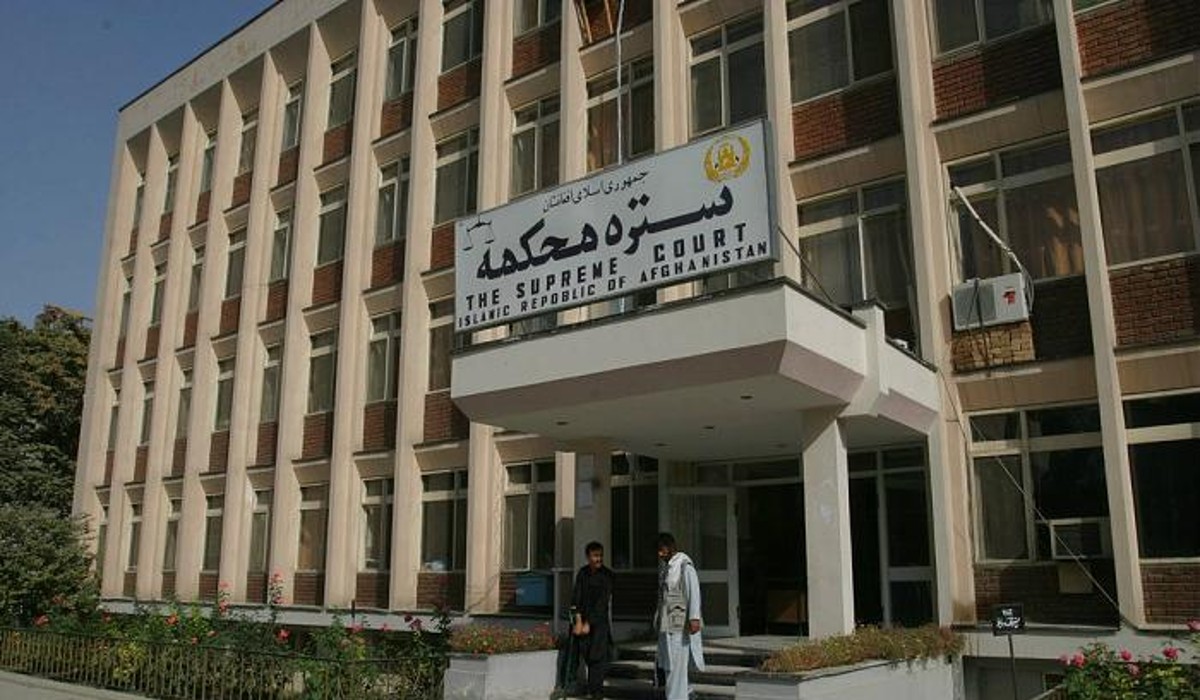Lawyers, judges, prosecutors and other actors involved with the legal system in Afghanistan face grave risks to their safety, and lawyers still practicing must navigate a deeply challenging, non-independent legal system, the Special Rapporteur on the situation of human rights in Afghanistan and the Special Rapporteur on the independence of judges and lawyers said on Friday.
To mark the International Day of the Endangered Lawyer, 24 January 2023, the two UN experts in a statement said they are gravely concerned about the dire situation faced by lawyers in Afghanistan and take this occasion to stress their broad concerns about the human rights abuses resulting from the dismantling of the independent legal system, and its replacement with a de facto system that flagrantly violates international standards.
“Since Taliban de facto authorities assumed control of Afghanistan in August 2021, lawyers and other legal professionals have faced incredible obstacles but have nonetheless persisted in their efforts to meet the legal needs of Afghan people,” two UN experts — Margaret Satterthwaite, the UN Special Rapporteur on the independence of judges and lawyers, and Richard Bennett, the UN Special Rapporteur on the situation of human rights in Afghanistan, said.
Legal professionals—especially women—face immense hardship and significant risks for attempting to play this key role, and the international community should support them and enable their critical work.
Systematic exclusion of women from legal system
The two UN experts said that in an act of brazen discrimination, the Taliban have attempted to effectively ban all women—including women judges, prosecutors, and lawyers—from participating in the legal system.
Among those removed were more than 250 women judges—over 10% of the bench before the Taliban takeover—as well as many hundreds of women lawyers and prosecutors, the experts said, adding that due to threats to their security, many women judges have fled the country or gone into hiding.
“Women lawyers have been unable to seek renewal of their licenses, a requirement imposed by the Taliban, and therefore cannot practice law within the de facto system,” the UN experts said.
These and other restrictions on women’s participation in public life amount to grave violations of their human rights. Reports indicate that numerous women lawyers are experiencing serious mental health problems in response to these measures, they said.
The UN experts added that not only are women lawyers in danger and their livelihoods upended, but the valuable services they provided—especially for other women—have been largely wiped out.
Despite these immense challenges, reports suggest that many women lawyers are persevering, finding ways to provide much needed legal assistance, the experts said.
Some women have reportedly taken on advisory roles, offering advice and drafting documents for male colleagues, and others have reportedly been able to work at legal aid organizations and law offices, though the escalation of restrictions on women in late December 2022 may interfere with such arrangements. It appears that the space for women lawyers to continue to function varies widely from province to province, the experts said.
Prosecutors have been side-lined and face grave risks
Prosecutors have been systematically marginalized and are unable to play their crucial role in the administration of justice, the UN experts said.
They added that the Taliban fired all prosecutors when they took control of Afghanistan.
While some male prosecutors were reinstated in the months that followed, in 2022, all remaining prosecutors were ordered to halt their work and transfer all investigations to de facto courts, the experts said.
This exclusion violates international norms concerning the independent functioning of prosecution services.
A subset of prosecutors—especially those who investigated and prosecuted members of the Taliban—face extremely grave risks as a result of their previous work, and many reportedly remain in hiding, according to the experts.
Reports indicate that criminal offenders who were released by the Taliban have also sought to carry out reprisals against prosecutors and judges.
According to the experts, this includes women officials who face threats because they were involved in the prosecution and sentencing of perpetrators of violence against women, as well as terrorism cases.
Taliban takeover of the bar association and lawyers’ licensing process
In November 2021, the Taliban broke up a meeting of the Afghanistan Independent Bar Association (AIBA) and announced its incorporation into the de facto Ministry of Justice, the experts said.
They said that the Taliban cabinet issued a directive requiring lawyers to renew their licenses, imposing a process available only to men.
Through this action, all of Afghanistan’s female lawyers—a quarter of the legal profession before the takeover—were deprived of their permission to practice law.
These actions functionally excluded women from the practice of law, and also compromised the ability of those still practicing from exercising their profession freely and independently.
According to international norms, bar associations should be independent and autonomous, and protect the independence and integrity of lawyers.
The collapse of the independent legal system
The 2004 Afghanistan Constitution, which guaranteed the separation of powers, independence of the judiciary, and rights of citizens, has been suspended.
Currently in Afghanistan, there are no standardized procedures or substantive statutes in criminal or civil matters that police, judges, or lawyers can follow. The Taliban ousted all judges from the bench when they took de facto control of Afghanistan and stripped the Office of the Attorney General and the AIBA of their key roles, the UN experts said.
Some specialized courts, including those devoted to handling sexual and gender-based violence, have been dissolved. Women have been largely excluded from the legal system and may appear only when they are parties to a dispute. Laws and rules concerning legal procedure, judicial appointment, and procedures for fair trials, which were implemented by the previous government, were suspended. The result is a no longer independent, all-male system implementing the Taliban’s version of Sharia law, and a human rights catastrophe.
Judicial independence has been abolished, as religious scholars have replaced judges
According to the UN experts, key de facto judicial positions have been filled primarily by Taliban members with a basic religious education, rather than legal experts.
Judges are advised by Muftis (Islamic scholars qualified to issue opinions on points of Sharia) appointed by the acting Chief Justice. Judges reportedly have been tasked with performing investigative functions under Sharia law. In practice, it appears Muftis are exceeding this advisory role and becoming involved in pre-trial processes, including investigations—and advising on punishment—and that judges are largely following their advice, the experts explained.
They stated that due to this reason, judicial personnel often serve as both investigators and adjudicators in the same case, violating international fair trial standards.
Such measures have increased courts’ caseloads, as well as already lengthy pretrial detention periods.
Taliban leader Haibatullah Akhundzada instructed the de facto Supreme Court in late September to appoint panels of judges for every province to expedite the processing of the cases of pretrial detainees, the UN experts said.
They added that alarmingly, alleged perpetrators are often detained, sentenced and punished on the same day by the police and other security agencies, denying any semblance of due process or judicial review.
Underscoring the lack of judicial independence, on 13 November 2022, Taliban spokesperson Zabihullah Mujahid posted that the Taliban leader had met with judges and reminded them that the application of “hudud” and “qisas” sentences was compulsory when conditions under Sharia law were met.





